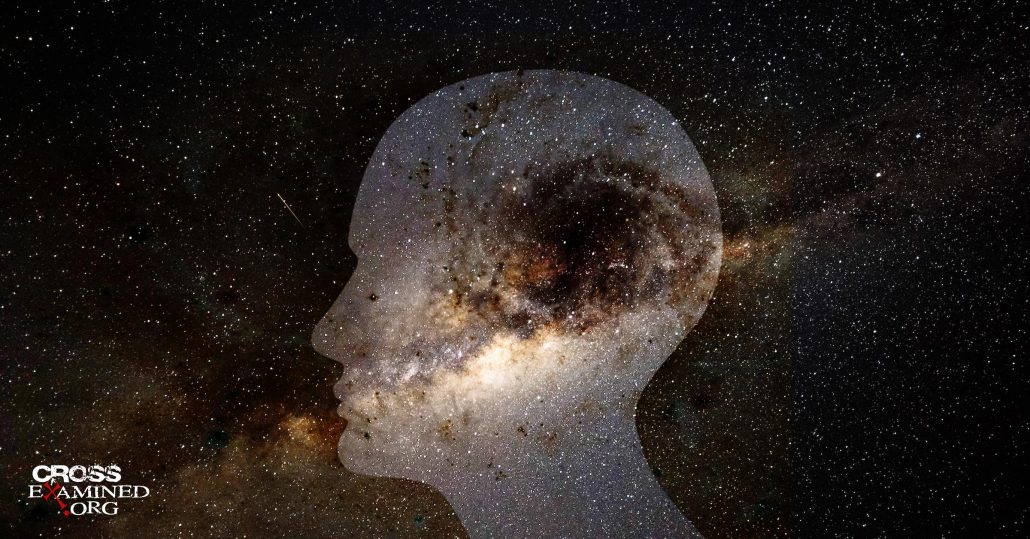Can Science Answer All Questions?
In the movie Contact? Ellie told her father that she loved him, but she couldn’t prove it scientifically. That’s because science can’t do that sort of thing. Science can’t show that two people love each other. Science is simply a tool that we utilize to uncover facts about the observable universe. So here’s a fun fact: Science is not omniscient. It cannot answer all our questions. Not by any stretch of the imagination. And the idea that we can’t know anything unless we have scientific evidence for it, is ridiculous. The claim ‘We can’t know anything unless we can verify it scientifically’ cannot, itself, be verified scientifically. That kind of argument is self-defeating. Interesting, no? So when someone says, “There’s no scientific evidence for that, therefore I won’t believe it”, I can respond by saying either:
1. Your face has no scientific evidence
or
2. There are things that we know to be true apart from any scientific evidence.
I find the latter to be more efficient, although not nearly as epic.
Here are 2 categories of facts that we all accept without help from science:
1. Metaphysical Facts
Metaphysics, by definition, lies outside the realm of science. The term ‘Metaphysics’ means ‘meta-physics’ or ‘beyond physics’. Metaphysical facts include the existence of other minds, the existence of the world outside of your own mind, and the reality of the past. We believe that there are minds other than our own, the external world is real, and the past wasn’t created 5 minutes ago and given only the appearance of having aged as it did. These beliefs are what philosophers call properly basic beliefs. That means that they are foundational. We can’t show them to be true or false. We accept them as facts without question, but they cannot be proven by science.
Science cannot tell me that there are minds other than my own. When I’m in a lecture, I assume that the professor who is lecturing is a real entity with a mind and not simply a figment of my imagination or a part of my dream (as much as I’d like to think so). I treat the world around me as if it is real. I could be stuck in the matrix or I could be a brain floating in a jar of chemicals being stimulated by some crazy scientist who is giving me the illusion of this world. But I know I’m not. I know that the past is real; I was not created 5 minutes ago and implanted with 22 years’ worth of memories. I comfortably believe all of this and yet there is no scientific evidence that confirms it.
2. Ethical Facts
A lot of interest has been generated recently in the field of Evolutionary Psychology. Some experts in this field have argued that we can get morality from understanding who we are as social mammals. The idea of the purely ‘selfish gene’ is slowly being understood to be false, or at least an incomplete picture of who we really are. We are not simply lone mammals on the quest to propagate our DNA at all costs—there is a complex social infrastructure in mammalian groups/herds that has an inbuilt morality for the purpose of helping us deal with each other. Elephants bury their dead, bonobos comfort each other after loss, and most primates understand and operate by the laws of reciprocity and justice. This explains morality, right? Science has given us ethics!
Just a minute, buddy. Let’s not get ahead of ourselves. This kind of argument commits what David Hume articulated as the Is-Ought fallacy. You can’t get an ‘ought’ from an ‘is’. This means that observing and understanding how things are cannot tell us that this is the way things ought to be. Just because we observe that mammals help each other doesn’t tell us that we should help each other. Well, maybe we can say that we ought to help each other because that increases human flourishing. Right? Ok, but that presupposes that human flourishing is good and should be striven towards. But why is increasing human flourishing good in the first place? Why should we pursue it? Any answer that one gives to that question will not come from science. That’s because science is descriptive, not prescriptive. The ‘should’ or ‘ought’ has to come from elsewhere. Science can’t give us that.
Science doesn’t tell us that rape is evil. Science can’t tell us that rape is evil. The value judgment, evil, lies beyond the scope of the scientific method. Sure, science can tell us that rape can have biological and psychological repercussions on individuals and societies, but to say that rape is evil is not something that science can do. We know that rape is evil wholly apart from science.
Science can’t answer questions beyond those about the observable, testable world around us. Trying to do so is akin to using a yardstick to find the weight of a bucket of water. It won’t work because that isn’t the correct tool. My point here is not to say that science is bad. Not at all. I love science. Science has given us, and continues to provide us with progress in health and understanding the world around us. But we should not try to apply science outside of the fields for which it is meant.













Leave a Reply
Want to join the discussion?Feel free to contribute!